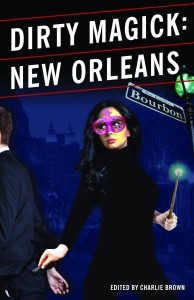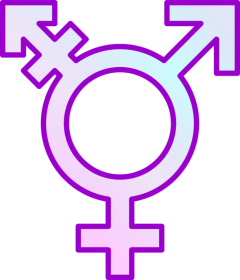 On Facebook the other day I asked the question, “What story has your favorite secondary character, the one that really outshined the primary character?”. I got a whole slew of answers.
On Facebook the other day I asked the question, “What story has your favorite secondary character, the one that really outshined the primary character?”. I got a whole slew of answers.
Fiona – On tv, it’d have to be Avon in Blake’s 7. He’s given all the best lines.
Nobilis – Nearly all of the secondary caracters in the Stephanie Plum novels are incredibly awesome, bug Grandma Mazur stands head and shoulders above the rest.
Rick – Game of Thrones: Tyrion and The Princess Bride: Inigo Montoya
Rebecca – The Shining
Mark – Wheel of Time. Mat was way cooler than Rand.
Chris – Probably “Sword of Truth” before Goodkind beat a dead horse with pulp.
Thomas – Lt. Dan!
Dan – Easy. Han Solo.
Wolf – (Almost) every single character in Scott Siglers Earthcore!
Steve – Brian Daley’s JINX ON A TERRAN INHERITANCE series. Alacrity Fitzhugh made those books awesome.
Chris – Harry Dresden has some of the best secondary characters ever. Bob, Susan, the Alphas, McCoy, Butters…
August – Thomas (Dresden Files) and (i)n Robin Hobb’s Farseer trilogy, The Fool, although he becomes a much bigger character in later trilogies.
Scott aka “Jar Jar” – Star Wars: The Phantom Menace… that Jar Jar is a dreamboat.
Dave – The Scar, by China Mieville. I love the protag, but Uther Doul is hard to beat
Laura – Hmm, That’s a hard one Book, I would have to say Deborah from the Evolution series by Starla Huchton, TV show: Gajeel from Fairy Tail. Movie: The Irishman from Braveheart.
Scott aka “Jar Jar” – Seriously though: In Raymond Feist’s first four books in the Riftwar series (Magician: Apprentice; Magician: Master; Silverthorn; and Darkness at Sethanon), Jimmy The Hand shines as my favorite. He (literally) steals the show.
Timothy – Hyperion by Dan Simmons is full of amazing characters.
Thomas – There’s always john smith, John smith, John smith, John smith, John smith, John smith & John smith from JC Hutchins 7th son novels.
James – Gurney from Dune. Especially played by Sir Patrick Stewart.
That’s quite the list. As an author I’ve had that happen I’m sure. One really interesting instance is from my book Two Steps from Hell. We get to know one character somewhat posthumously. When I got the chance to write a story for Dirty Magick: New Orleans, I decided I wanted to use the same universe in my story since it took place in New Orleans. I also decided that I wanted to use this dead character, Willie Evans, as my protagonist. Only I needed him to be alive. So I placed the story in TSfH’s past. In writing this story I fell in love with him even more. That makes me feel a little bad about his ultimate fate, but we all become worm food sooner or later. And this way I get to play with him for a little longer.
The goal for any writer, I believe, is to make all of your characters so rich and so real that you could tell your stories with any of them. You don’t want to outshine your protagonist. That does happen in some of the above stories. I’m thinking of one Scott Sigler story in particular (CHANG BANG!!). It also happens, in my opinion, in Patrick McLean’s How to Succeed in Evil, where the comic foil become my favorite. Thankfully the main character just shines in a different way.
Here’s a bit from my story “Stigmata” that will give you some insight into Willie:
He took a moment to look around. The ceiling was crazy high, and the benches were gorgeous things made of wrought iron. He walked past the font of holy water and dipped his fingers in. He flicked the water into his own face, hoping it would wake him up a little. “Hello? Anyone in here?” His words echoed back to him. The place was deserted. “Maybe I can catch a few winks and go to the nearest crowded cafe.” He still wasn’t sure why or who was chasing him. It could have been nothing more than his own personal demons, but drunk or straight he had never been this paranoid without reason.
If he could just spot who it was, he’d call his sister the detective. She’d ream him out in good fashion, but then she’d listen and maybe he could crash on her couch for a day or two while she looked into it. Until he could identify them, it wouldn’t do any good. She’d chalk it up to his penchant for telling stories and ask him when he was going to get his shit together.
Halfway down the center aisle, he saw the crucifix. They were the creepiest fucking things. Christians complained about Islam being a religion of violence, but they seemed to forget that a man on a massive torture device hung in the middle of theirs. He looked closely at the artifact. He’d always thought Christ was supposed to be naked. This guy was wearing all black. He had the crown of thorns and blood smeared face Willie always heard about, but the blood looked wet in the candlelight.
When he smelled blood and shit, he realized this particular torture victim was flesh and bone and not a wooden representation. Now he had a reason to call Helen. He just had to find a phone.
So, who’s your favorite second fiddle who jumped over to the first chair?
Please consider visiting my Patreon page and supporting my monthly fiction output!



